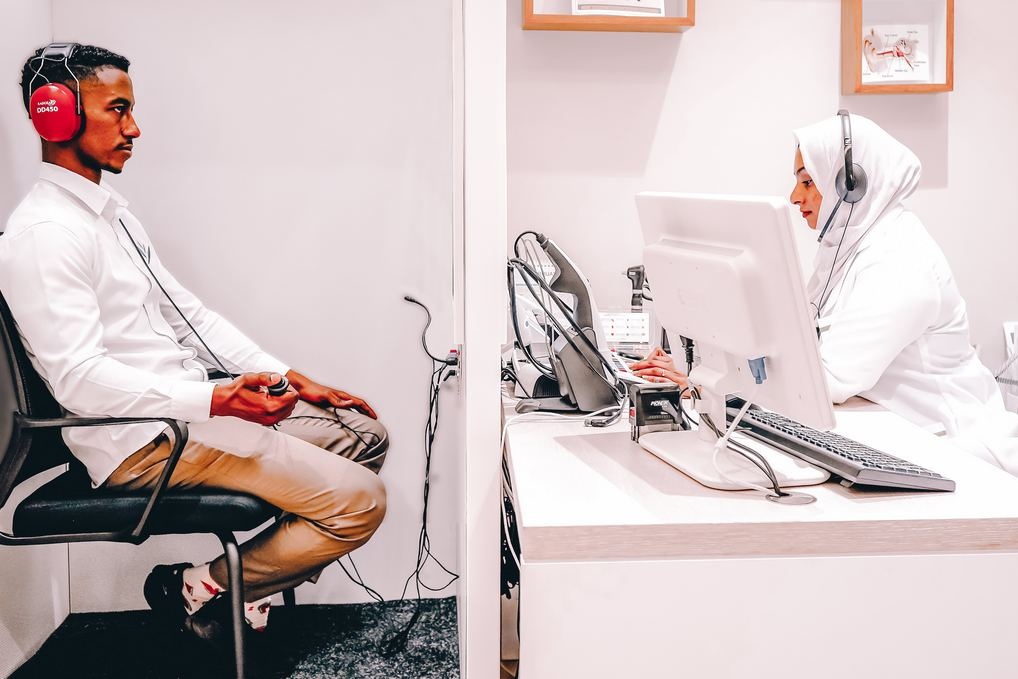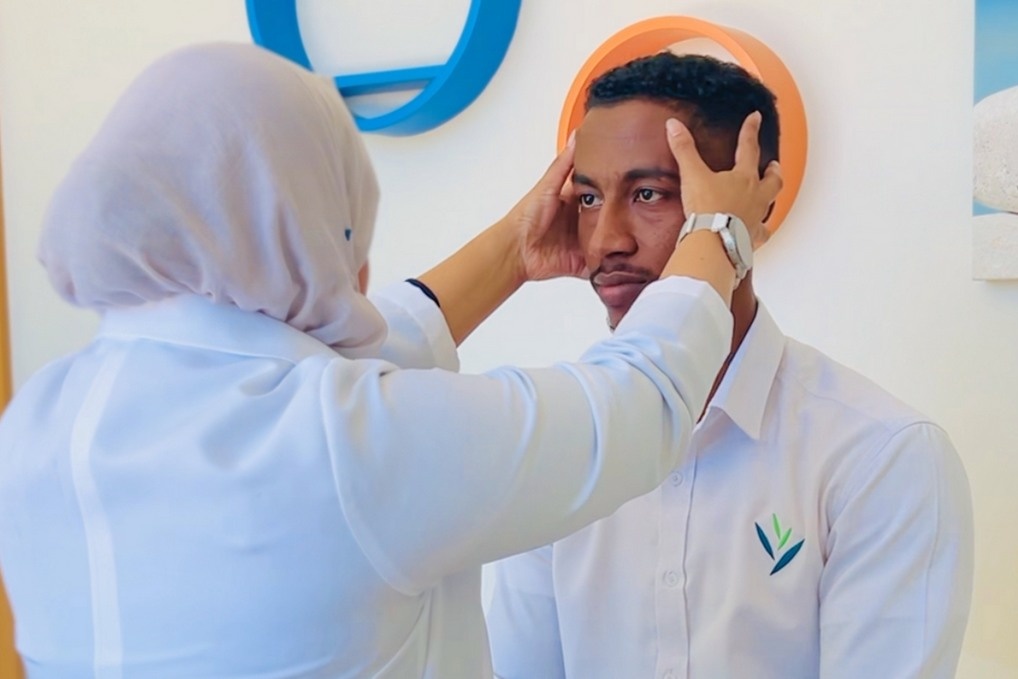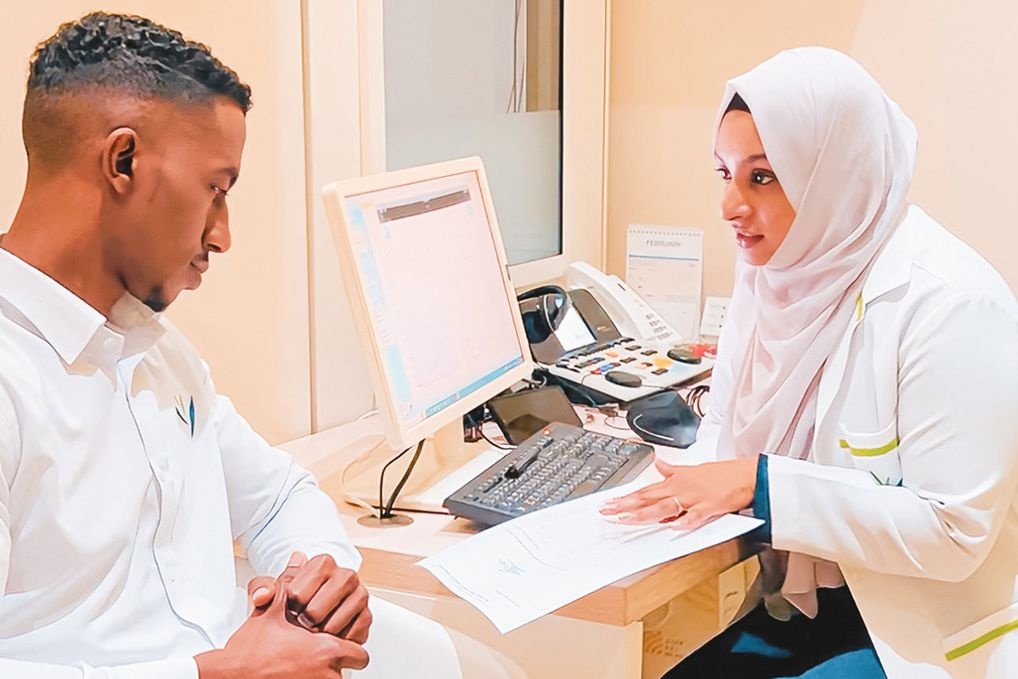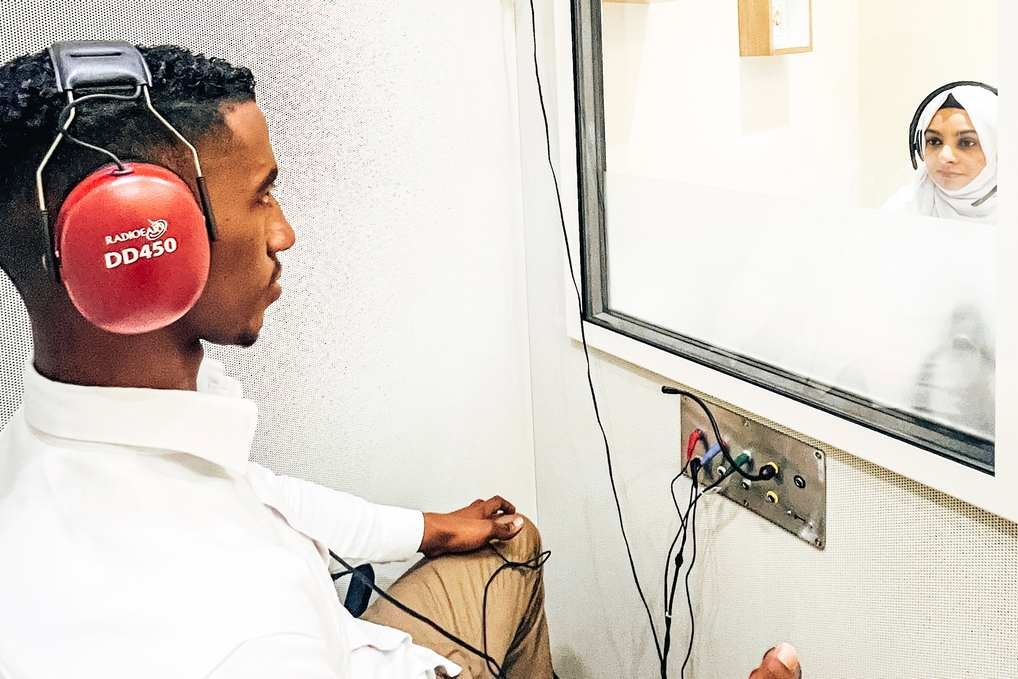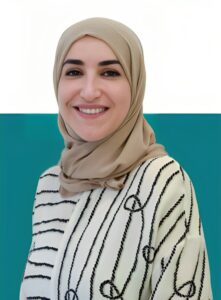Audiology
Hearing & Balance Clinic in Dubai
The ear is the organ in the human body responsible for hearing and balance. The slightest disruption in the function of the ear may affect hearing, balance or both.
Hearing loss is a silent disability which can affect individuals across all ages. It may be present at birth, or acquired during childhood due to accidents, infections or illness. Hearing loss can occur at all ages due to infections, illnesses, accidents, noise exposure, genetic predisposition, medications, and even by the natural process of aging in young adults and adults.
Hearing loss in children can be more impactful on their function than in adults, as it can affect the social and intellectual development. Hence early detection and intervention are crucial.
At Care Plus Clinic in Dubai, our Department of Audiology provides assessment, diagnosis, and management options for hearing and balance problems for patients of all ages.
Understanding Audiology:
Audiology is a specialized medical niche focused on addressing hearing and balance disorders. Our Audiologist utilizes the latest technology to assess the hearing and balance of patients to determine its impact on patients’ communication abilities and provides managements and rehabilitation options utilizing the latest and up to date research. Audiologists work in close partnership with ENT doctors. (ENT service also available here at Care Plus Clinic)
Our Expert Audiologist:
Our Audiologist specializes in diagnosing and managing a range of Auditory pathologies, both hearing and balance. From identifying hearing loss at the earliest, to improve the prognosis for childhood development, through to identifying the causes for dizziness and managing it, our audiologist is committed to a patient-oriented approach.
Book an Appointment:
If you’re experiencing ear related symptoms including dizziness, hearing difficulty, blocked ear or pain, difficulty understanding speech in noise, ringing or buzzing sounds in the ear, and sensitivity to sounds, we recommend booking an appointment with our Audiologist.
Our Audiologist will guide you and your family on age appropriate and complaint specific assessment and management options.
It Covers:
- Hearing Assessment and Management
- Tinnitus Assessment and Management
- Balance (Dizziness) Assessment and Management
Our Specialties

Hearing Screening

Pure Tone Audiometry

Conditioned Play Audiometry

Tympanometry

Acoustic Reflex Threshold and Decay

Vestibular Assessment and Management

Customized Vestibular Rehabilitation Programs
Frequently
Asked Questions
The following FAQs can help you learn more about our general medicine. If you have any additional queries, please contact us.
Hearing loss may be congenital (something that you are born with) or Acquired (something that you develop in life). There is no lower or upper age limit for developing a hearing loss.
In children, delay in speech and language development is one of the most common signs of early onset hearing loss. Children may also keep tugging their ears, complain of earache, not respond to parents when called, turn up the volume of electronic devices, ask for repetitions or try to lip read. Teachers may also express concern regarding the child’s attention and attentiveness in class or ability to follow instructions. Hearing loss in children can be temporary or permanent. Temporary hearing loss can be treated and need to be attending to at the earliest to avoid complications.
In adults, hearing loss can be temporary; which may be due to infections, or permanent due to nerve damage. Common signs of hearing loss include sudden blocking sensation in the ear, difficulty understanding conversations; especially in the presence of background noise, asking for repetitions, turning up the volume on electronic devices, experiencing ringing or buzzing sounds in the ears (tinnitus), etc. Some reversable hearing losses need to be treated at the earliest as the recovery maybe time sensitive.
Yes, a hearing test can be carried on children of all ages. Different techniques are used for different age groups. Early detection and management of hearing issues is crucial for their overall development. Hearing screening at birth had now become a part of the newborn test protocol so that if there are any issues identified, they can be addressed early on. Depending on the age and intellectual levels of the child, there are various non-invasive tests that can be performed to measure the hearing acuity. If you have concerns about your child’s hearing, our audiologist can advise you on what needs to be done.
Hearing tests have now become a part of many Annual health checks. However, regular hearing checks may not always be warranted unless there is a problem or a symptom. But, knowing your baseline hearing levels are always advantageous as it can help identify how much of your hearing has changed when something goes wrong, or age-related hearing loss sets it. Hearing tests can help identify not only peripheral problems in hearing but also central problems with the higher auditory centers. Early detection of potential issues allows for timely intervention and better prognosis.
However, if you work in a noisy place, play musical instruments or are exposed to loud sounds, it would be wise to check your hearing on a regular basis.
If you experience sudden changes in hearing and balance, seek professional advice promptly as this may be an emergency.
A simple yet comprehensive hearing test which gives an instant report will determine if your hearing is normal or affected. Depending on the test reports and symptoms, the Audiologist can guide you on the next steps. Every individual who has a hearing loss may not benefit or be a candidate for the hearing aid.
Dizziness is a common yet untreated problem in a large number of people. As the ear houses the balance organ, an audiologist can assess and identify the cause of your dizziness, which may or may not be originating from the ears. The audiologist will be able to manage your problems if they originate from the ears, or guide you on further management if the dizziness is of a different origin.
Some ear related dizziness can be fixed in a matter of minutes if identified and treated correctly. Unfortunately, the awareness that dizziness can be assessed, diagnosed and treated is limited.
None of the hearing or balance tests are painful or lead to any discomfort. The hearing tests for babies are carried out while they sleep and it does not even wake them up. For young children, the hearing test is carried out in the form of a game so that kids enjoy themselves and don’t have any performance anxiety.


